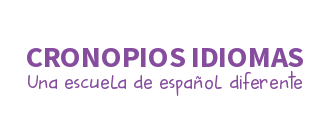Speaking Spanish like Gen Z: the ultimate guide
Keeping up-to-date can be challenging, especially when speaking a different language. We get it. However, once you learn the essential words that the new generations of Spaniards use, your language learning journey will accelerate, and blending into Spanish culture will become a piece of cake. More importantly, with this guide to speaking Spanish like Gen Z, you’ll be able to understand every meme your Spanish friends send you. Because we want you to laugh too.
Let’s start with one of the most popular expressions lately, one that we hope all Spaniards, young and old, have learned by now:
PEC: Por El Culo (PEC)
“Por El Culo,” or PEC, literally means “by the ass.” Fortunately, its meaning isn’t literal. It’s used when you really like something (it can be a

Foto de Bastian Riccardi en Unsplash
thing, an experience, or even a person). For instance, imagine you’re dining with some Spanish friends and one of them offers you a perfect pincho de tortilla – a Spanish omelette that’s juicy on the inside and slightly crispy on the outside. Instead of saying “yes, thank you,” if you want to speak like Gen Z, you should say, “por el culo,” and eat it happily.
Literal: also used as Lit
Not so different from English, it means literal (duh). Among Spanish youngsters, “literal” is used frequently, sometimes to emphasize strong agreement with something said, or to overstate the literalness of an event. For example, let’s say you’re messaging on Instagram with a crush. He liked your story and is now replying with some witty comments that perfectly reflect the point you were trying to make. Impress him by speaking Spanish like Gen Z and say “pff literal” (the “pff” adds emphasis to whatever you want to say).
Estar delulu

Foto de Karsten Winegeart en Unsplash
Let’s be honest, all of us, from time to time, have a delulu moment. Like many words in Spanish slang nowadays, “delulu” comes from the English word “delusional.” To be delulu (estar delulu) means to be a bit delusional. It applies to situations where you’re clearly not seeing things correctly, letting your imagination run too wild, or perhaps just stressed and saying things that make no sense. Often used during the early stages of love. For example, if your friend is explaining how she’s going to marry a girl she met on Hinge and form a marvelous family with two dogs, a cat, and a farm, but they’ve only been talking for three days, you might say, “amiga, ¿no estás un poco delulu?” (use wisely and with closed friends, we don’t want anyone to feel offended, right?).
Fifa
You might hear “fifa” and immediately think of the football (soccer, if you’re reading this from the US) international institution, or the video games. You’re not far from the meaning that Spanish Gen Z, especially queer people in the LGBTQ+ community, attribute to this word. “Fifa” refers to straight men who act in a misogynist or homophobic way, either online or in their daily lives. They’re typically associated with traditionally masculine things like football (sports in general), strength, and a certain aggressiveness. In opposition to this, there’s another new word: “potaxie.”
Potaxie
Like many of the words we’ve been learning, “potaxie” originated on social media, specifically on TikTok. It started with the LGBTQ+ community but is now generally used by TikTok users, reflecting very positive and empathetic traits. It refers to people who fight against sexist or homophobic behaviors, defending the right to be and identify however you want.
Lucir
Have you noticed the significant influence English has on Spanish slang nowadays? If the similarities aren’t clear, here’s a word that will convince you. Sepaking Spanish like Gen Z is not that hard if you really need to watch content in English. “Lucir” is a verb used to describe how things or people look. In English, “it looks great!” used to translate as “¡parece muy bueno!”, but it’s much easier to use a word with a similar sound, that is, “lucir.” “¡Pff, luce increíble!” would be a much more updated translation of the previous sentence.

Foto de Helena Lopes en Unsplash
There’s nothing better than being surrounded by people from a different country, whose native language is different from your own, and unexpectedly joining a conversation with slang that surprises everyone. With this guide to speaking Spanish like Gen Z we’ve given you some hints of words that might do the trick, but now it’s your turn: go to that party you’re unsure about, start talking with your Spanish crush, or simply read and understand Spanish social media better. There are more words, of course, and grammar and conversations that you can continue to work on in a Spanish course. You can check out the Spanish courses we offer at Cronopios Idiomas to master the Spanish language once and for all. But we think this is not a bad start. Luce interesante, ¿no?

